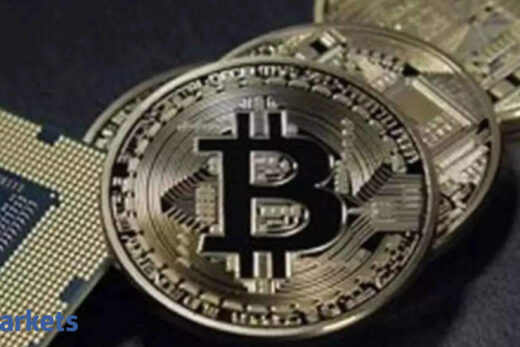Fintech is also evolving at par with the generation. Digital and branchless banks are replacing traditional bank structures and payments happen at lightning speed through digital payments.
Millennials are also embracing the ‘digital currency’ lately. A recent survey suggests that 66% of millennials have more faith in cryptocurrency than the stock market.1
Millennials and cryptocurrency – A perfect match
Cryptocurrency is a digital asset that can be used as a means of exchange and a store of value.
This generation of youth is known to embrace all things digital. Even when it comes to investments, most of them prefer doing things online or over an app rather than filling up lengthy paperwork.
Cryptocurrency emerged a decade ago as a digital currency – an alternative to our current financial system. It means that cryptos can be purchased, sold, exchanged, or stored only digitally. It has now established itself as a new asset class in the world of investments.
The instantaneous nature of millennials goes hand-in-hand with the cryptocurrency market that operates 24/7 and 365 days a year. You do not have to wait for business hours to trade or invest in the asset.
These factors point out that cryptocurrency as an asset class fits perfectly into the lifestyle of millennials.
But here are three reasons as to why millennials need to invest in cryptocurrencies.
Millennials are a highly ambitious generation. They seek investments that yield high returns in shorter duration. While there are not many assets that generate high returns quickly, cryptocurrency is an exception.
Since its inception in 2009, cryptocurrency has grown in value and has managed to beat gold as the top asset class.2 Historically, Bitcoin, which is the most popular crypto, has mostly outperformed the market except in 2018.
 ET Spotlight Special
ET Spotlight SpecialOver the past year alone, Bitcoin has grown by ~400% 3 and Ethereum (the second largest cryptocurrency) has increased by 1,000%. 4
For instance, if you had invested ₹1,000 in Bitcoins at the beginning of 2020, its value would have now appreciated to ~₹4,000.
On the other hand, Reliance Industries Ltd, a renowned stock returned ~30.34% 5 in the last year. Suppose you had invested ₹1,000 in RIL, it would have appreciated to ₹1,303.
Other investments such as Fixed Deposits, Post office savings etc., give an average return of only about 7%, which does not even beat inflation in the long run.
- Addition to retirement portfolio
Cryptocurrency is highly volatile. The fact that sometimes its 30-day gains or losses can exceed 100% is testament to that. Meaning the risk and returns are relatively high. However, they make a great addition to a millennial’s retirement portfolio.
Firstly, millennials are a generation who do not have access to pension from their employers. Even those who hold government jobs are most unlikely to receive pension after retirement. So, they need to look for investments that can yield returns for a comfortable retirement.
Secondly, they are a young generation – meaning they can afford to take risks. They have more time to try new assets and gain experience in investing. Also, studies have shown that the pandemic has increased the risk appetite of millennials than ever before.
 ET Spotlight Special
ET Spotlight Special
Research suggests that an addition of 1% cryptocurrency in a regular portfolio could mitigate the overall risk and generate higher returns. 6
- A modern alternative investment
The term ‘Alternative Investment’ can also be defined as non-correlated assets. Meaning, alternative investments’ performance is not related to traditional asset classes such as stocks and bonds.
In India, we have a longstanding tradition of investing in gold as an alternative asset. But gold is a physical asset. And lately, the price of gold has shot to the skies. Meanwhile, crypto can be held digitally, which means storage does not become an issue, and you can buy it in fractions with as little as ₹100.
Cryptocurrency can make an alternative investment for millennials over the long term since they are likely to remain strong and pull through any financial crisis that may occur in the future.
How to invest in cryptocurrency safely?
Investing in cryptocurrency is no longer technical. Many cryptocurrency platforms or exchanges have been set up in India to enable the public to invest in crypto.
Simplicity, security, and accessibility is something that you may want to look for in an exchange before investing.
Most of the exchanges in India are self-regulating themselves to keep illicit activities on their platforms at bay. Platforms such as
CoinSwitch Kuber have set up a KYC mandate to ensure that unauthorized users do not enter the forum. While the exchanges are doing their best to enhance security, the users are also expected to do their research before investing.
References:
- https://breakermag.com/survey-millennials-trust-nothing-except-maybe-crypto/
- https://economictimes.indiatimes.com/markets/commodities/news/crypto-is-beating-gold-as-2020s-top-asset-so-far/articleshow/78267055.cms
- https://www.businesstoday.in/markets/global-markets/bitcoin-hits-25000-mark-400-increase-since-march/story/426104.html#:~:text=The%20value%20of%20the%20cryptocurrency,in%20the%20past%20eight%20months.&text=ZebPay%2C%20one%20of%20India’s%20largest,in%20present%20times)%20by%202030
- https://www.coindesk.com/ether-trades-above-800-for-the-first-time-since-2018
- https://www.moneycontrol.com/india/stockpricequote/refineries/relianceindustries/RI
- https://bitcoinist.com/new-yale-study-every-portfolio-must-include-at-least-6-bitcoin/
Disclaimer: This above is non-editorial content and TIL hereby disclaims any and all warranties, express or implied, relating to the same. TIL does not guarantee, vouch for or necessarily endorse any of the above content nor is responsible for them in any manner whatsoever. The article does not constitute investment advice. Please take all steps necessary to ascertain that any information and content provided is correct, updated and verified.



